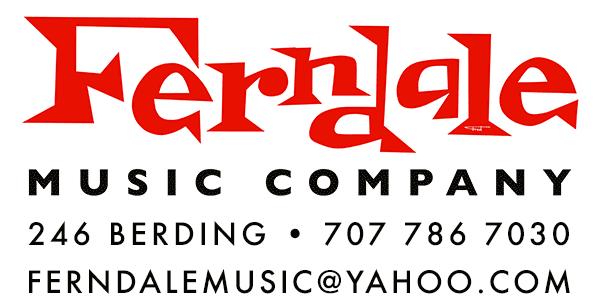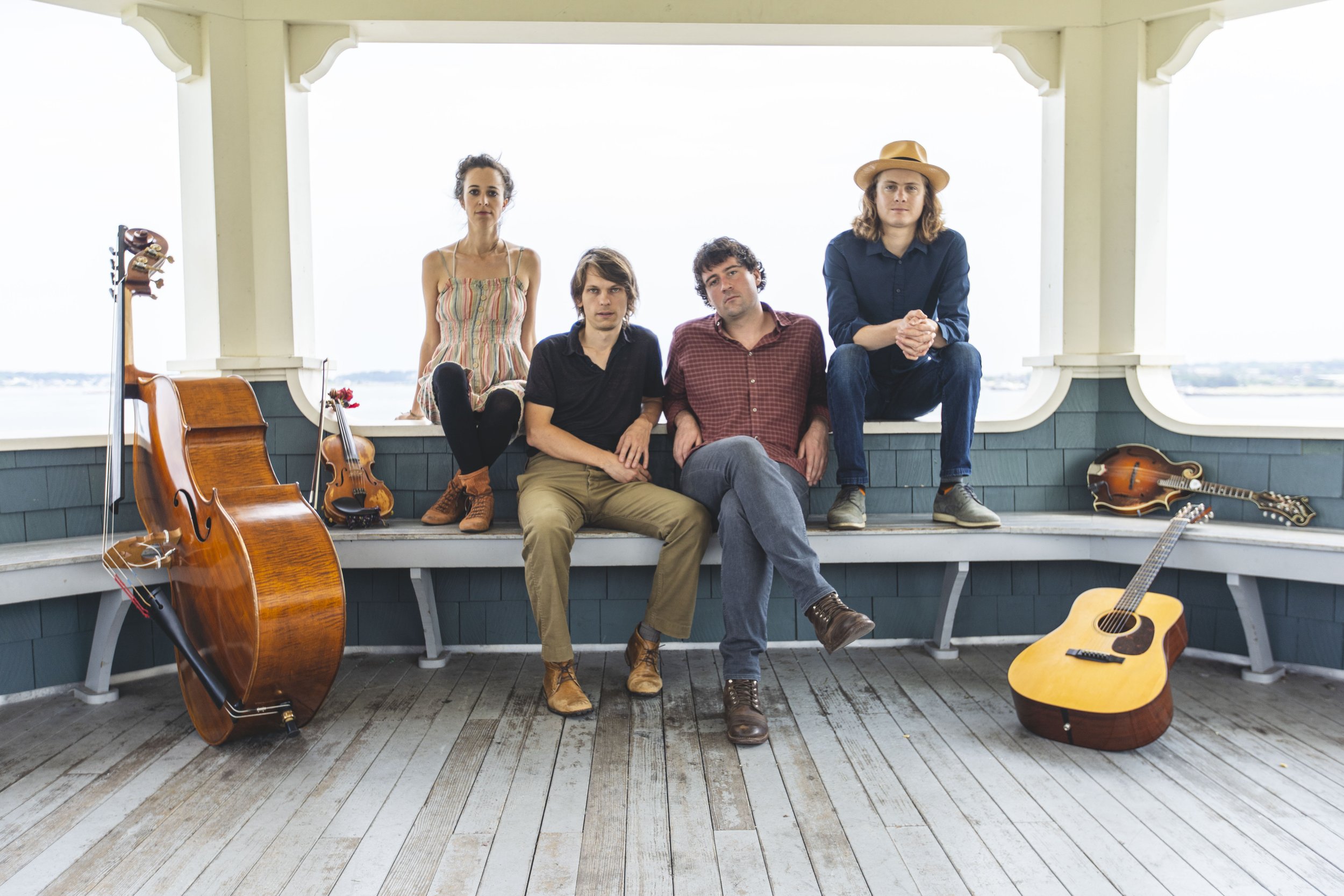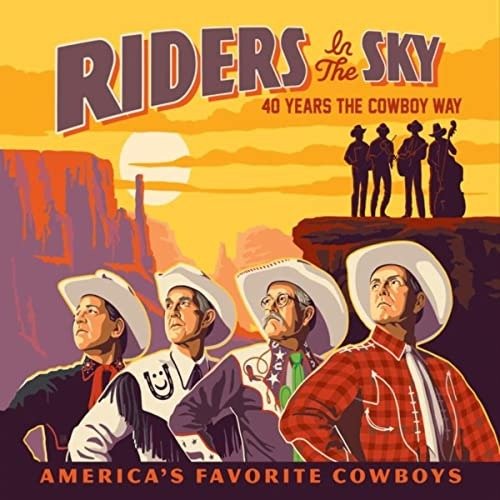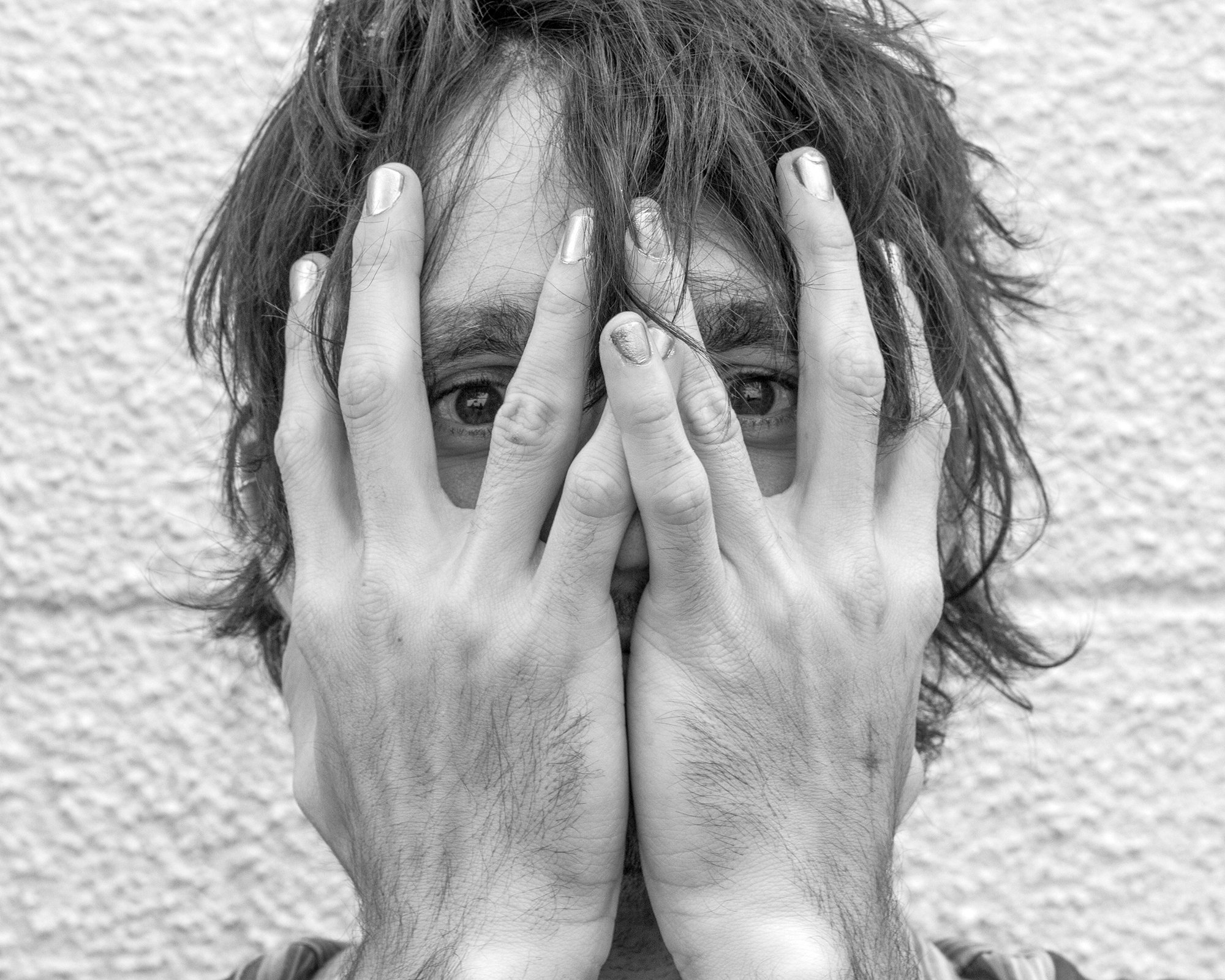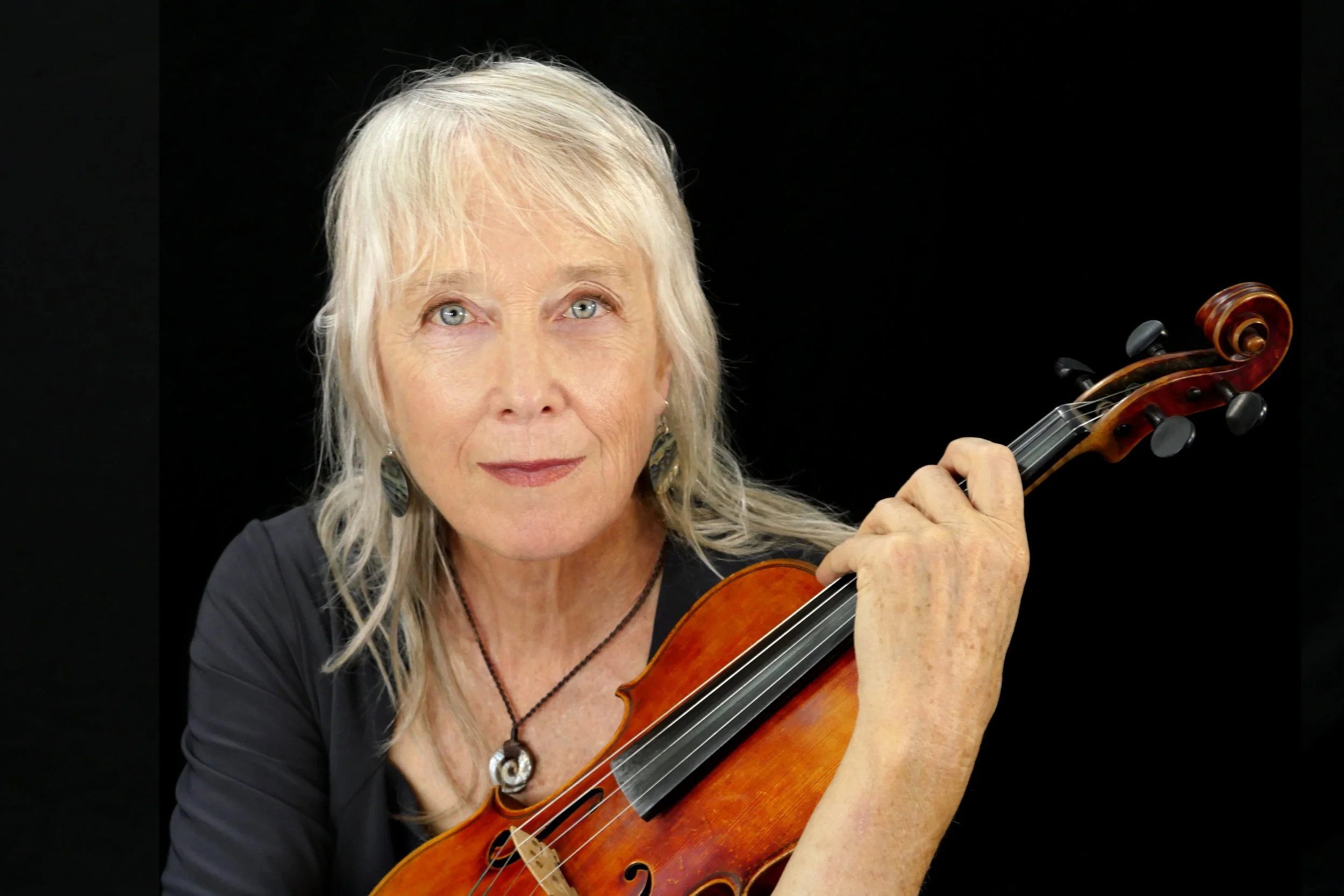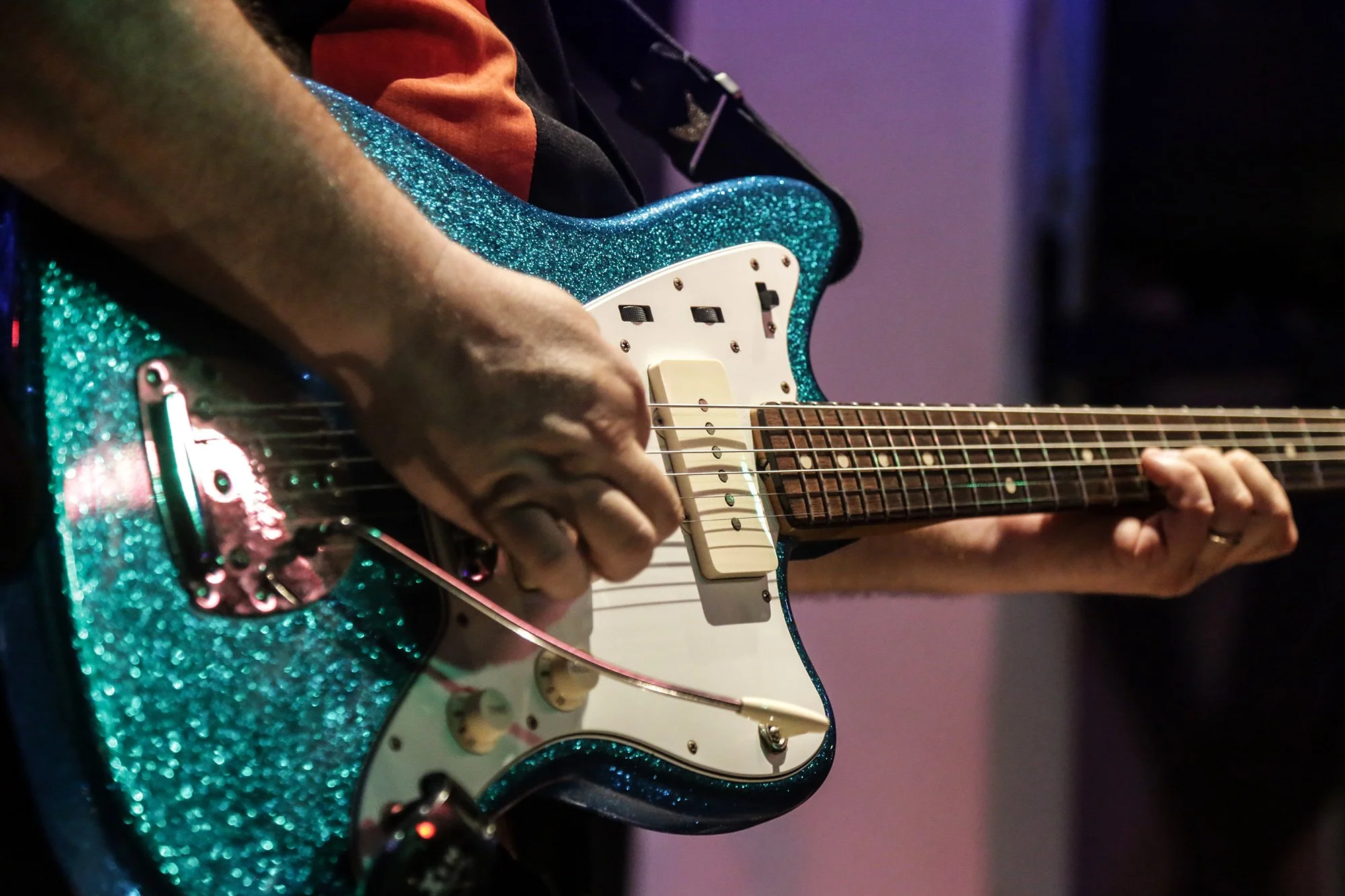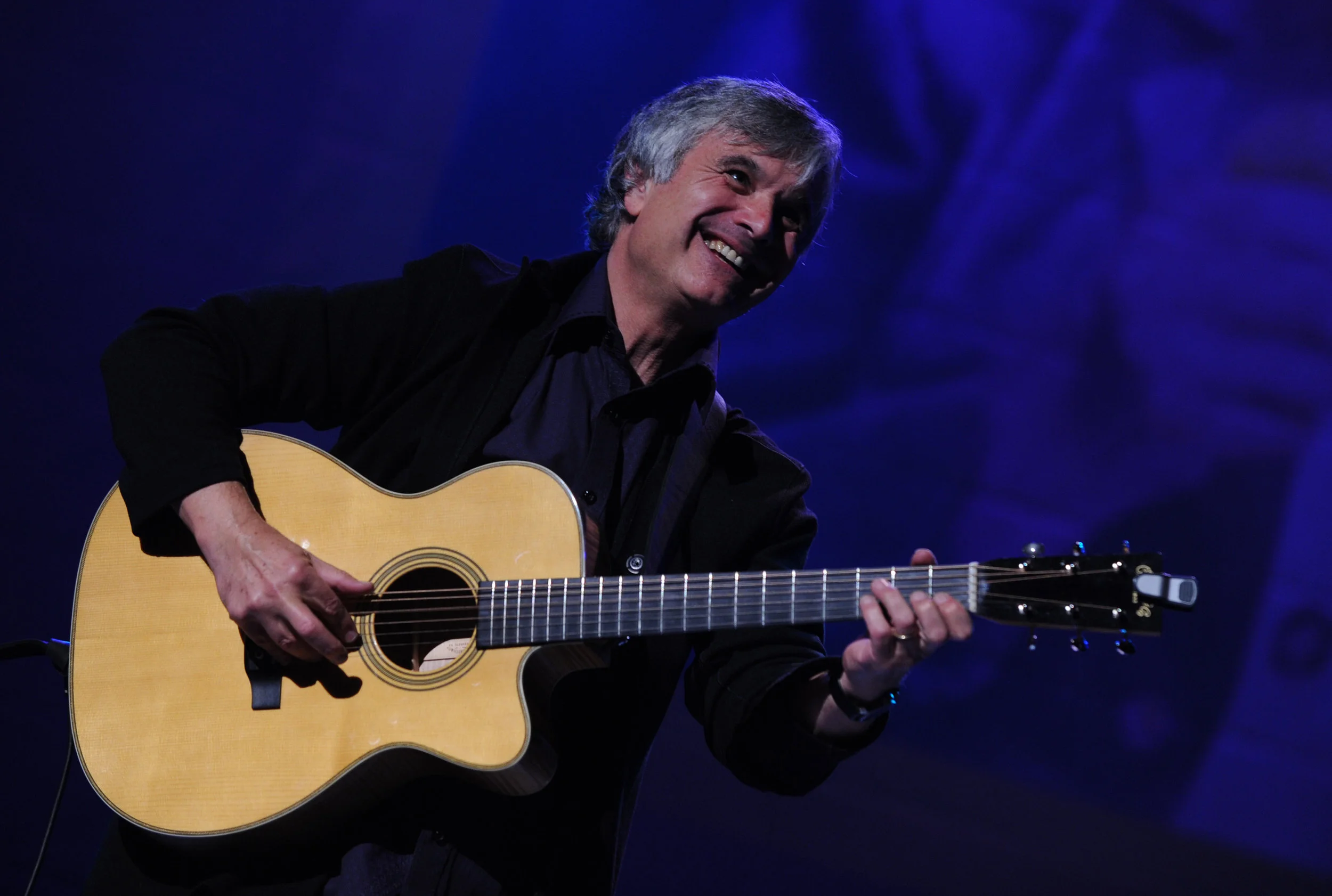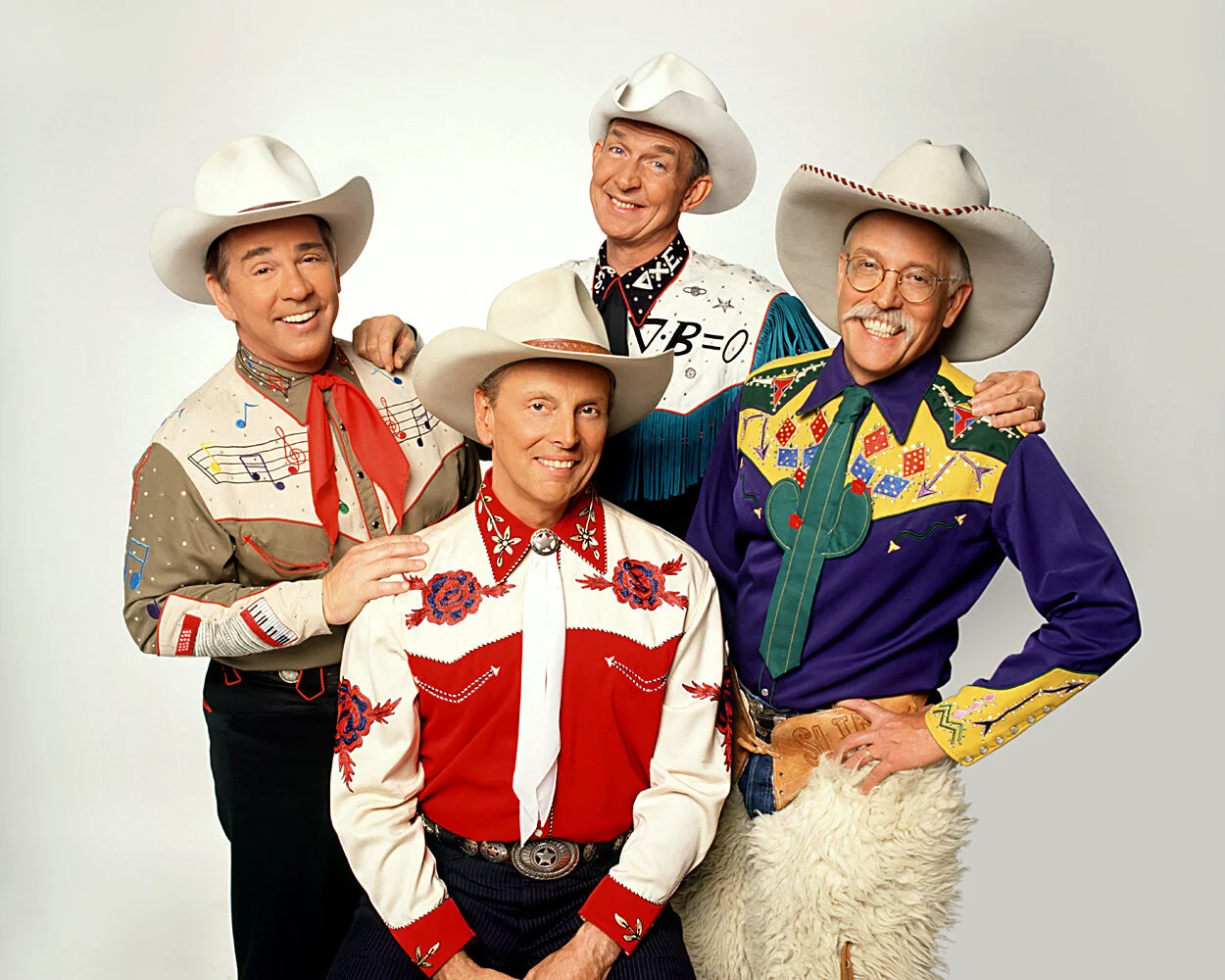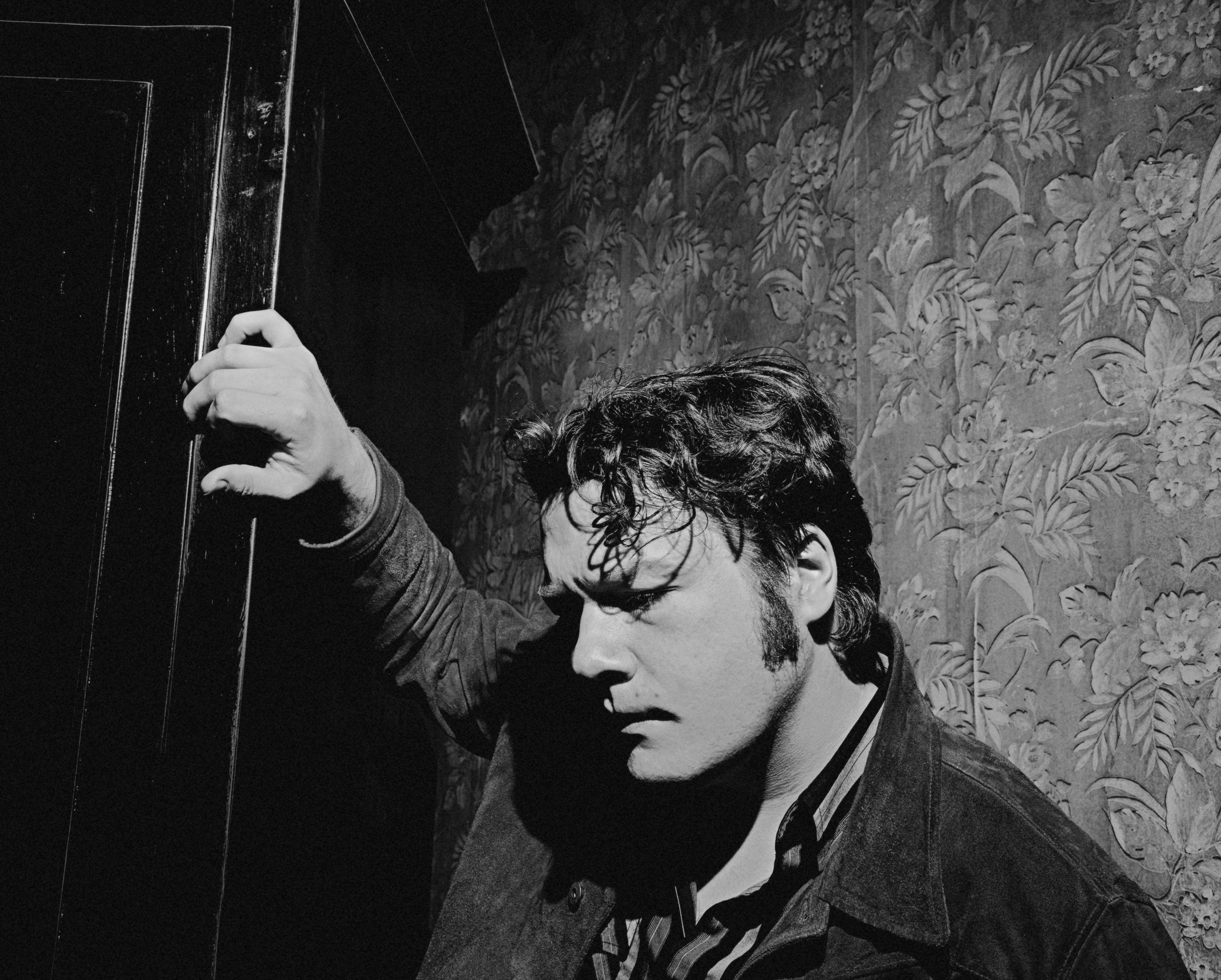
Early James
Early James recorded his first two Easy Eye Sound albums, Singing For My Supper (2020) and Strange Time To Be Alive (2022), at the studio inside the vaunted label’s Nashville headquarters. But for James’ third release, Medium Raw, producer and Easy Eye Sound label head Dan Auerbach envisioned something quite different for the Alabama-bred singer-songwriter-guitarist’s rawboned, sometimes scarifying music.
“Day of the first session, I had my GPS routed to Easy Eye,” James recalls. “We ran into some traffic, and I texted [engineer M.] Allen [Parker] — ‘Hey man, sorry, we’re gonna be about 15 minutes late.’ And he said, ‘It’s OK, we’re still getting set up at the house.’ And I was like, ‘What house?’ ‘We’re recording at this house, it’s really cool.’ It was news to me! It felt unusual in the moment, which I think makes you play the songs differently. But I’m really happy with and proud of the results.”
“I wanted to try to find that power of when I first saw him, when it was just him and his guitar,” Auerbach explains. “After working with him a couple of times in the studio, I felt like I wasn’t going to be able to do it in the same kind of way. The comforts and luxuries of the studio, where you’re able to hear everything and make adjustments and changes, wasn’t right for this project.”
“Some of my favorite albums are those Arhoolie records produced by Chris Strachwitz that were recorded in houses, by Fred McDowell, Lightnin’ Hopkins. I felt like we might get better results if we did it in a house.”
The house in question, known as “Honky Chateau,” was an old Nashville property owned by photographer and artist Buddy Jackson.
“It’s a house with a lot of character,” Auerbach says. “I’ve always loved it. I always felt inspired when I was there. I knew it would be a fun place to do something. It’s over a hundred years old. It’s got the old plaster on the walls, plaster ceilings, old wallpaper. There are big oak floors and an oak stairwell. The first floor has twelve-and-a-half-foot ceilings. It’s pretty awesome. But it’s not a recording studio by any means.”
“We had to drag all the gear in there. We set the little mixing console upstairs — this crazy, wild old ’50s Universal Audio tube console that I’d just gotten and fixed up, which was built by FAME Studios’ Rick Hall for his studio in Memphis — in a spare bedroom, and we ran the wires down the stairs. We set up James and everyone in separate little rooms downstairs. James’ little Princeton amp was right behind him, there were no baffles or anything, and so when he was soloing it was all bleeding into his vocal mic. Adrian Marmolejo, James’ bassist since the beginning, was in the hallway, peeking around the corner. We had these beautiful microphones sucking up the soul of the house. It sounded fucking amazing. When you have headphones on, you can hear that room. You can even see the room when you close your eyes.
James notes that pretty much everything you hear on Medium Raw was, as its title suggests, cut au naturel.
“There are just two overdubs, on ‘Rag Doll’ and ‘Nothing Surprises Me Anymore,’” he says. “We had intended to get a violin solo on ‘Nothing Surprises Me Anymore,’ and Dan said, ‘Ah, I came up with something.’ On the trio tracks, it was a challenge. Jeff Clemens, who drummed, was two rooms away — I couldn’t see him. We didn’t have in-ear monitors, and it was the first time for him hearing any of those songs. I love his drumming with G. Love [& Special Sauce] and Kenny Vaughan so much. You can hear Jeff kind of tiptoeing through it, and it makes the song move in a really cool way. It’s not hyper-polished, but it has Jeff’s confidence, and you can’t teach that.”
In many ways, the approach harkened back to James’ very first recording, a four-song EP he cut in Birmingham and released in 2017. “Someone said, ‘You should just release an EP,’” he recalls. “So me and Adrian, on his lunch break, recorded those four songs. There was construction outside of the studio, so we had to do it in the console room, which is not unlike this new record. If you listen closely, you can hear power saws next door.”
Like that first quartet of recordings, Medium Raw lives up to its name, presenting its brace of smart, playful, and often fiercely rocking original songs to intimate life with a stunningly vital sound that thrives on its lived-in real-world ambiance.
Beyond seven James originals — six previously unrecorded numbers and the fan favorite “Dig To China,” which dates back to that first EP — the new album includes songs co-written with Auerbach and top Nashville songwriter Pat McLaughlin (“I Got This Problem”); Sheryl Crow’s frequent collaborator Jeff Trott (“Nothing Surprises Me Anymore”); roots singer-songwriter Langhorne Slim (“Go Down Swinging”); Irish songwriter Mick Flannery (“Upside Down Umbrella”); and James’ former Birmingham roommate Ryan Sobb (“Unspeakable Thing”).
The writing continues to display the hallmarks of James’ distinctive, one-of-a-kind style: whip-smart wordplay, upended clichés, humor both light and dark, and a deep intelligence that frequently reflects a literary sensibility.
The self-deprecating musician says, “I’m really good about picking up books and getting what I need from ’em. I’m really bad about picking up something and getting what I need and putting them back down again. I am a huge Cormac McCarthy fan. Some of his books are very hard to read, just because of the way they make you feel. I’m working on Blood Meridian now for the third time.”
His musical sensibility has leaned toward the hard stuff from an early age: “I remember getting obsessed with the blues and getting obsessed with old country. My first favorite musician was Hank Williams. There was something about how dark that music was. I could listen to Hank Williams on repeat and never get tired of it. Hank Williams, Jr., lives in my hometown of Troy, Alabama, and he and my dad were hunting buddies. They still run into each other at Julia’s Restaurant in Troy. I listened to a lot of Howlin’ Wolf, and his guitarist Hubert Sumlin — I thought that was Howlin’ Wolf playing the guitar.”
With Medium Raw now ready to be served, James is embarking on touring (backed by Marmolejo and drummer Joey Rudisell) that will take him through the U.S. and return him to Europe, where he has developed an enthusiastic fan base, for dates in the Netherlands, France, Germany, the Czech Republic, Austria, Germany, and Denmark.
Like the rambling bluesmen of old, whose repertoires would mutate from night to night, James says audiences should expect him to work some new wrinkles into his songs on stage: “I’m trying to play dress-up with this record on the road. You never know what it’s going to be wearing. It depends on what thrift store we get to.”
